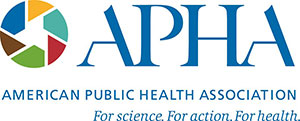The Abstract was presented at the American Public Health Association (APHA) 2022 in Boston, USA between 6 – 9 November 2022

Authors: Nennie Lungu,1 Matthew Kankhulungo, 1 Linda Muyumbu, 1 Boniface Maket,1 Maria Mkandawire,1 Yona Nyondo,1 Leo Magombo1, Jennifer Arney2
1 FHI 360, Malawi EMPOWER
2 FHI 360, Washington DC
Introduction
Adolescent girls and young women (AGYW) make up a disproportionate share of persons living with HIV in sub-Saharan Africa. There is therefore a critical need for implementation research on strategies for increasing access to HIV testing, prevention, and treatment for this priority population. Research by the USAID-funded program EMPOWER (Expanding Malawi HIV/AIDS Prevention with local organizations Working for an Effective Epidemic Response whose goal is to support the Government of Malawi (GOM)’s commitment to epidemic control by stopping HIV transmission and preventing new HIV infections, particularly among AGYW has demonstrated that offering HIV testing options including self-testing through community outreach clinics is a promising strategy that may overcome many of the barriers to accessing HTS among AGYW. This abstract describes how EMPOWER contributed to reaching more AGYW with HIV self-test kits.
Methodology
In January 2021, EMPOWER initiated an extended community outreach model of service delivery to AGYW in DREAMS clubs which takes HIV testing services closer to communities where the AGYW reside. The outreach clinics were offered at safe spaces and flexible times convenient to the girls. Through the outreach clinics, risk reduction sessions were offered to AGYW through targeted one-on-one and small group sessions to increase demand for HIV testing and prevention services. Risk assessment tool was administered before offering self-test kits to AGYW. Directly assisted self-testing approach was promoted by trained service delivery teams to ensure that AGYW test and interpret their HIV test result. The provider helped to ensure accuracy of results and for easy follow-up on the self-test outcomes.
Results
Using community outreach clinics to offer HIV testing services to AGYW contributed to an increase in the number of HIV self-test kits distributed to AGYW from 1,870 in FY21 Q1 to 10,460. The achievement represents 99% of the HIV self-testing distribution target of 10,492. Of the test-kits distributed, 9,937 were distributed through the directly assisted model representing 95% with the reminder of 5% (n=523) being self-test kits distributed through unassisted model. The HIV self-test kits were distributed to 10,253, AGYW. Of those who accessed the kits 30 were screened reactive and were all confirmed positive through conventional testing. All confirmed positives were initiated on treatment and thus having a 100% linkage rate to ART treatment.
Conclusions
Expanding community-based HIV self-testing with facilitated linkage has the potential to reduce coverage gaps and increase the proportion of AGYW linked to HIV treatment and prevention
FHI-360 - Malawi EMPOWER
Bluegum Avenue, Mulima Building,
P.O. Box 521
Zomba
Malawi
Phone: +265 887 827 291
E-mail:BMaket@fhi360.org
Website: www.malawiempower.org
